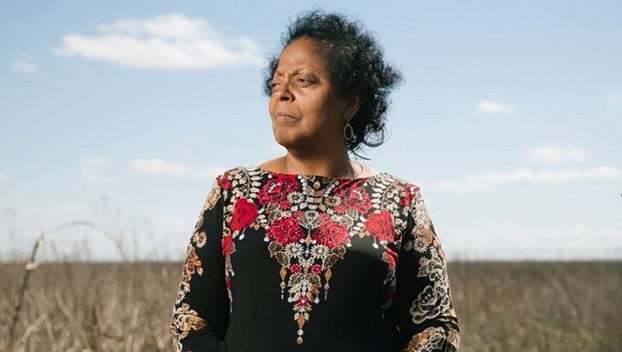Court reverses decision to issue air permits to Formosa Plastics
Published 12:15 am Saturday, September 17, 2022

- (Photograph by Brad Zweerink / Earth Justice) Sharon Lavigne of RISE St. James
|
Getting your Trinity Audio player ready...
|
ST. JAMES — This week, Louisiana’s 19th Judicial District Court reversed the Louisiana Department of Environmental Quality’s (LDEQ) decision to issue air permits that Formosa Plasticsneeded to build its proposed petrochemical complex in St. James Parish.
The decision throws out the air permits and sends Formosa Plastics back to the drawing board. The permits would have allowed Formosa Plastics to emit over 800 tons of toxic pollution into the air, which local activist group RISE St. James said would exacerbate environmental racism and harm the health of St. James’ predominantly Black residents in a region known as “Cancer Alley.”
“Stopping Formosa Plastics has been a fight for our lives, and today David has toppled Goliath,” said Sharon Lavigne, founder and president of RISE St. James. “The judge’s decision sends a message to polluters like Formosa that communities of color have a right to clean air, and we must not be sacrifice zones.”
“This ruling will help the whole region from the Baton Rouge area to St. Charles Parish breathe a little easier,” said Scott Eustis, community science director for Healthy Gulf. “It is an important step towards addressing a long legacy of environmental racism in Cancer Alley.”
Corinne Van Dalen, senior attorney at Earthjustice, said, “This decision forces LDEQ to abide by the Clean Air Act and its public trustee mandate and fully assess the impacts of the toxic pollution that Formosa Plastics would have greatly exacerbated in an overburdened Black community.”
Formosa Plastics’ massive proposed petrochemical complex would include 10 chemical manufacturing plants and numerous support facilities spanning 2,400 acres, located just one mile from an elementary school in St. James Parish. According to an article by ProPublica, it would have doubled to tripled the levels of cancer-causing pollutants currently harming residents from existing industrial plants. The company’s own modeling shows that when the chemical complex would operate, the air in parts of St. James Parish would violate the Environmental Protection Act’s national, health-based limits for soot (PM2.5) and ozone-forming nitrogen dioxide (NO2). Inhaling the predicted, excessive concentrations of either pollutant, even for short periods, could produce breathing disorders, like asthma attacks, and Chronic obstructive pulmonary disease (COPD).
In 2020, LDEQ approved Formosa Plastics’ application for 14 air permits, with few if any changes to make them more protective for public health, despite 15,500 public comments submitted opposing the permits. A month later, Earthjustice represented RISE St. James, Louisiana Bucket Brigade, Healthy Gulf, No Waste Louisiana, Center for Biological Diversity, Earthworks, and the Sierra Club in an appeal challenging LDEQ’s decision to approve air permits. Beverly Alexander, a St. James resident represented by the Tulane Environmental Law Clinic, intervened in the lawsuit to oppose the permits.
The project would also have emitted upwards of 13.6 million tons per year of greenhouse gasses, the equivalent of 3.5 coal-fired power plants. Petrochemical production is the fastest-growing use of fossil fuels — mostly used for making plastics and much of it for single use.
This victory comes days after a victory against the South Louisiana Methanol petrochemical complex which was also planned for St. James Parish.





